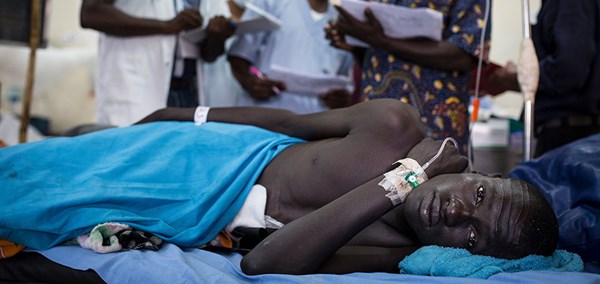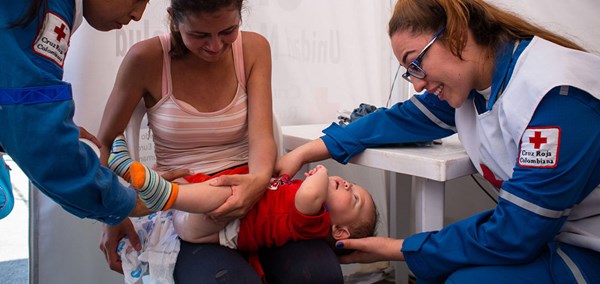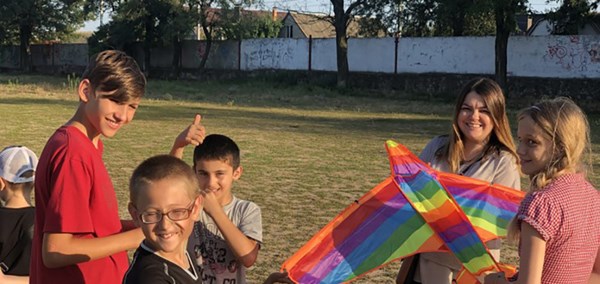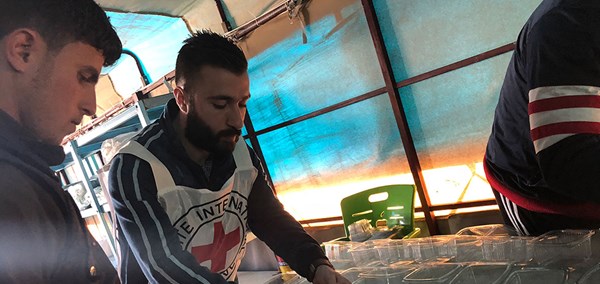International results report 2019

Armed conflict in parts of the Middle East, Africa, Asia and Europe, brutal violence across Latin America, and climate related disasters globally devastated millions of people’s lives in 2019.
Where we work
Our focus in 2019
Armed conflict in parts of the Middle East, Africa, Asia and Europe, brutal violence across Latin America, and climate related disasters globally devastated millions of people’s lives in 2019.
The Norwegian Red Cross and its Red Cross, Red Crescent partners - who together make up an astounding 13.7 million volunteers - have helped provide clean water, sanitation, health care and protection to people effected by humanitarian crises. NorCross and its National Society partners provide basic services, training and tools to communities and health professionals across the world. We help strengthen the capacity of our Movement partners, primarily through a network of finance specialists who focus on finance development, resource mobilisation and governance.
NorCross remains committed to principled humanitarian action. Health care is a human right and not subject to political or religious affiliation. Which is why we provided emergency health care to children and families affected by ISIS’ reign of terror in north eastern Syria. Quality maternity services, orthopaedic treatment and intensive care were life changing for many patients in the Al Hol camp hospital.
What we do
People we reached
How we make a difference to people’s lives across the globe

Clean water and sanitation
Access to safe drinking water and adequate sanitation is a NorCross priority because it is directly linked to positive health outcomes. Large scale municipal WASH projects in the Middle East has contributed to the reconstruction of war-torn countries. And volunteers in Africa, the Americas and Asia formed water committees, who oversee the construction and ongoing maintenance of boorholes, water pumps and latrines.
During 2019, NorCross and its Movement partners reached more than half a million people with hygiene and hand washing advice – a key part of disease prevention. Similarly, volunteer action has helped reduce the spread of untreated human waste which we know causes disease.
Protection of health workers & clinics

And our work in Latin America to protect health workers, their patients and medical facilities is firmly on the political agenda because of the successful lobbying and achievements of the Red Cross. In a region that has been described as the ‘epicentre of violence not linked to war’, nurses and doctors are often too frightened to treat patients in gang or rebel held areas, which can leave communities without adequate healthcare. Diagnosis are missed, vaccination campaigns cancelled and mortality increases.
NorCross together with the International Committee of the Red Cross works closely with medics, civil society and Ministries of Health to highlight and track levels of violence against medical staff, and to provide support and training to help them deal with violence in the workplace. These affirmative actions have led to a re-introduction of health services in many marginalised low-income communities.
Advocacy: a humanitarian voice for change
Advocacy around sexual and gender based violence, urban warfare and the use of landmines; and climate change and its effect on humanitarian crises were key priorities in 2019. The SGBV conference in Oslo gathered leading experts, the UN and politicians together to discuss the challenges around financing SGBV projects. It also highlighted the need to support male and LGBTQI rape in conflict survivors, who often fail to receive support due to stigma around masculinity and sexuality.
The War in Cities conference uncovered the rise in urban warfare and the need to control landmine use. Twitter post And NorCross produced the climate report: Overlapping Vulnerabilities, the impacts of climate change on humanitarian needs. Link to reports Signalling the organisation’s commitment to greening its humanitarian response, and its role as a climate action advocate.

Responding to disasters
Disaster response is a fundamental pillar of NorCross’ international work. In 2019 we responded directly to six weather related crises, including the Mozambique cyclones where our staff helped track and prevent cholera outbreaks. We provided considerable financial support to the International Federation of Red Cross and Red Crescent Societies’ Disaster Relief Fund – an effective financial tool that allows Movement partners to prepare and respond to crises quickly and effectively.
– Do take a look at some of our statistics below. And please read on to find out how the power of volunteer action changes people’s lives for the better.
Resources and expenditure 2019
Total expenditure for the international activities in 2019 was 1.25 billion NOK. 721 million NOK was support to ICRC humanitarian operations.
During 2019, NorCross implemented and supported humanitarian action in priority areas across the world with funding from several different donors. Overall Norwegian Ministry of Foreign Affairs funds (MFA) represented around 71% of total income, while Norad funds represented 6%. The remaining donors, such as the European Union and Others represented 2% and 4%, respectively. NorCross generated income and private and corporate donations amounted to 16%.
Regional distribution
The Middle East and North Africa receives the largest share. A significant proportion of these funds support Syrians who are either internally displaced in Syria, or Syrian refugees living in Lebanon or Turkey. African National Societies receive 16% of the total spend, Asia 10%, the Americas 6%, and Europe 2%. Global activity accounts for 27%. These relate to projects implemented by the Federation or ICRC such as global health activities.




